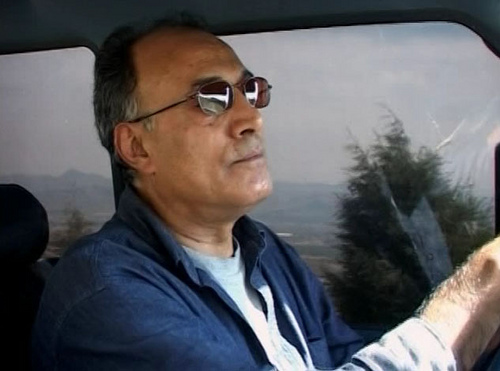Kiarostami at Work [10 on TEN]
From the Chicago Reader (October 29, 2004). — J.R.
10 on Ten
*** (A must-see)
Directed and written by Abbas Kiarostami
With Kiarostami
Abbas Kiarostami’s recent features satisfy few of the usual expectations about narrative films. Yet in 10 on Ten — a documentary about his most recent feature, 10, showing twice this week at the Gene Siskel Film Center–he appears to be slavishly living up to those expectations.
Like 10, 10 on Ten is split into ten chapters, the last nine of which have labels that suggest topics in a master class: “The Camera,” “The Subject,” “The Script,” “The Location,” “The Music,” “The Actor,” “The Accessories,” “The Director,” and “The Last Lesson.” Kiarostami implies that this film — made for the French DVD of 10, released last summer (the U.S. version will be out November 2) — is his attempt to explain the rationale behind his working methods. The film never becomes as far-fetched as Edgar Allan Poe’s 1846 essay “The Philosophy of Composition,” which purports to explain rationally how he made creative decisions in composing “The Raven.” Yet there’s something suspect about Kiarostami’s cookbook-style lucidity — he may be sincere, but he seems to be overestimating the role rationality plays in his decisions. Read more


